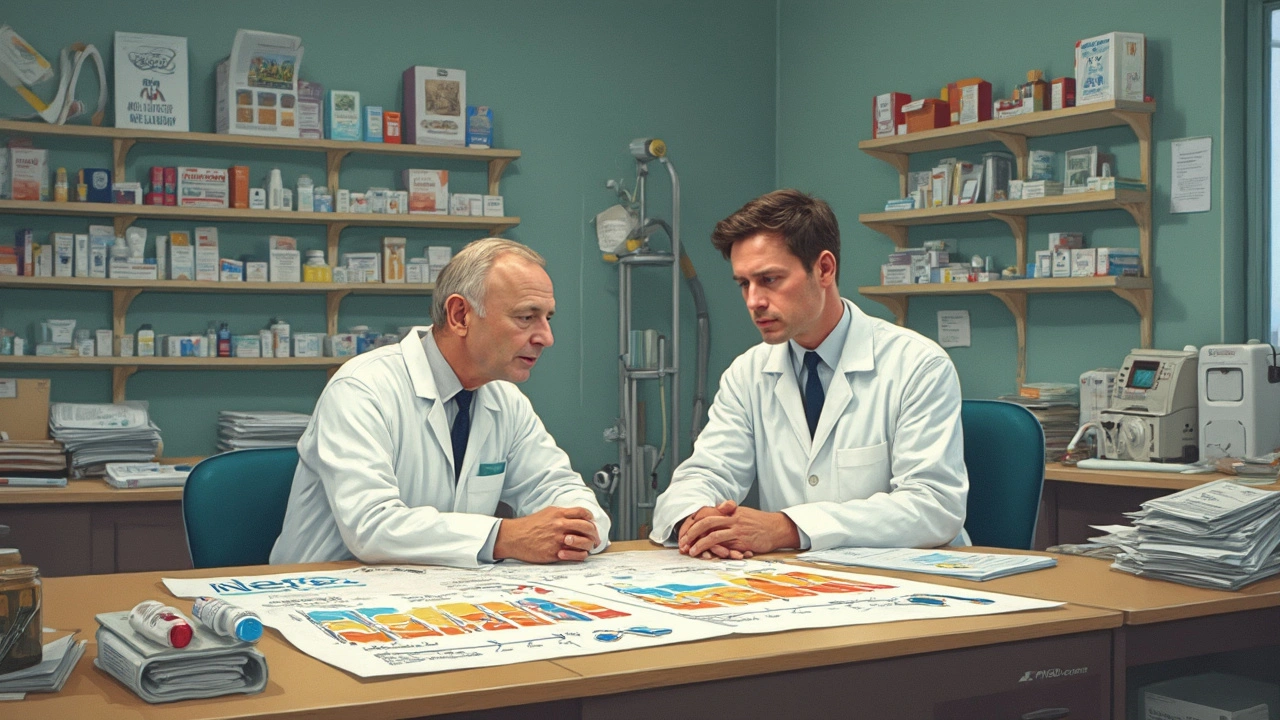Serotonin Syndrome – What It Is and How to Spot It
If you take antidepressants, pain relievers or even some herbs, you might have heard of serotonin syndrome. It’s a real reaction that happens when too much serotonin builds up in your brain. The good news is most cases are mild and can be stopped early if you know the signs.
Serotonin is a chemical that helps regulate mood, sleep and pain. Certain drugs boost its level to help with depression or migraine relief. When several of these drugs are mixed, or doses get too high, the body can overreact. That’s when serotonin syndrome shows up.
Common Signs You Shouldn't Ignore
The first clue is usually a sudden change in how you feel. Think rapid heartbeat, sweating, shivering or feeling hot all over. Many people also notice confusion, agitation or an uneasy restlessness that comes on fast.
Your muscles can get twitchy too. Small jerks, especially in the face or limbs, are common. In tougher cases, stiffness and trouble moving happen. Fever is another red flag – it can climb quickly and feel like a flu.
Watch your stomach as well. Nausea, vomiting or diarrhea often accompany the other symptoms. If you see three or more of these signs within hours of changing medication, treat it as a possible emergency.
How to Prevent a Dangerous Reaction
The easiest way to stay safe is to talk with your doctor before adding any new drug. Even over‑the‑counter supplements can raise serotonin, so mention vitamins or herbal blends too.
If you’re switching from one antidepressant to another, ask about a washout period. Some doctors recommend waiting a few days or weeks to let the first medicine clear out.
Never double up on similar prescriptions without checking. For example, taking an SSRI and a tramadol painkiller together raises the risk a lot.
Keep a symptom diary. Write down any sudden shakes, fever spikes or mental fog. That record helps your doctor decide if it’s serotonin syndrome or something else.
If you think you’re experiencing the syndrome, stop the suspect medication right away and call a medical professional. Most urgent care centers know how to treat it with supportive care and sometimes an antidote medication that blocks excess serotonin.
Recovery is usually quick once the drug is stopped – most people feel better in 24‑48 hours. Still, follow up with your doctor to adjust treatment safely.
In short, serotonin syndrome isn’t something you need to fear if you stay informed. Knowing the triggers, spotting the warning signs early and keeping open communication with your healthcare team can keep you out of trouble while still getting the benefits of your meds.
Antidepressant Overdose: Recognizing Serotonin Syndrome Warning Signs Before It's Too Late
Serotonin syndrome is a life-threatening reaction to too much serotonin, often caused by antidepressant overdose or drug interactions. Know the warning signs - tremors, clonus, high fever - and act fast.
Imipramine Drug Interactions: How to Avoid Serotonin Syndrome and Medication Risks
Dig into the crucial risks of mixing imipramine with SSRIs, MAOIs, and other antidepressants. Find out what serotonin syndrome looks like and why proper washout periods can be lifesaving. This detailed guide gives real-life strategies to avoid dangerous medication combinations and touches on the practical side of switching therapies. You'll walk away with a smarter approach to antidepressant safety.

